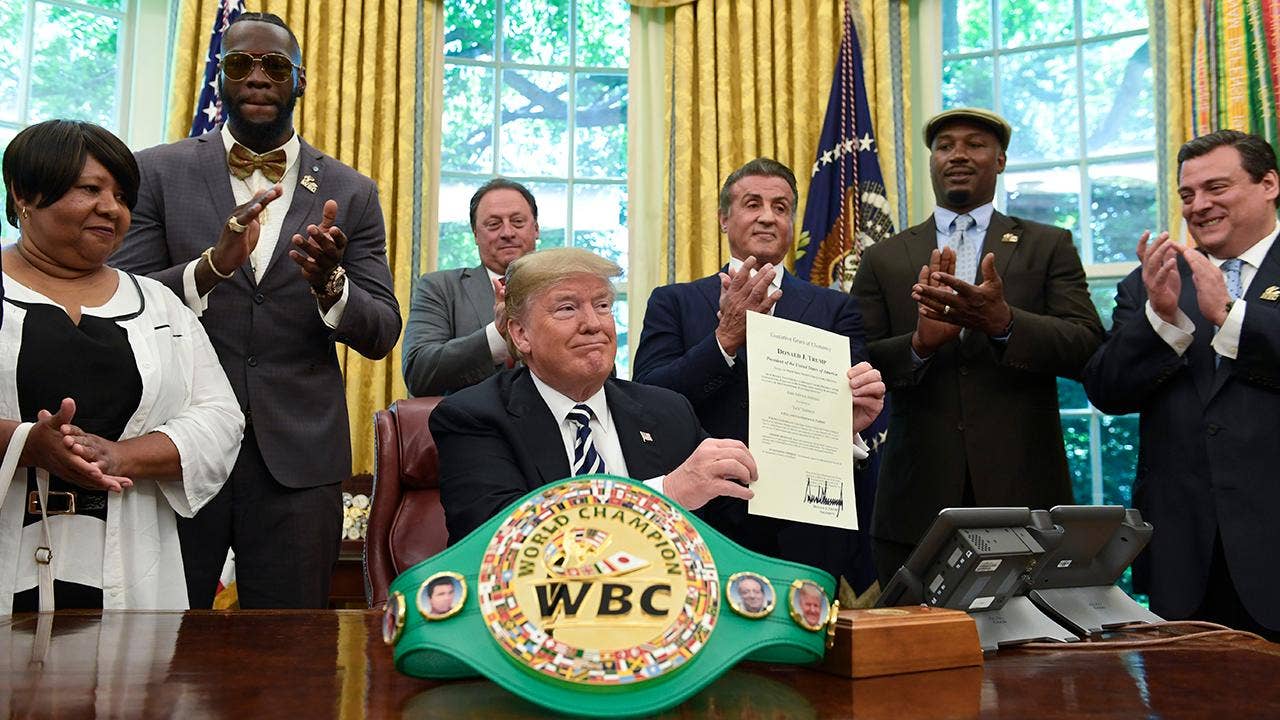
President Trump announced in May that he is granting a full pardon to conservative filmmaker Dinesh D'Souza.
D'Souza was convicted in 2014 for making an illegal campaign contribution. Trump, in announcing the pardon, said he was "treated very unfairly by our government."
The pardoning of D'Souza is Trump's fifth since taking office in 2017.
Read on for a look at what presidential pardons are, and why the president has the authority to issue them.
What is a presidential pardon?
A pardon is seen as a "sign of forgiveness," not necessarily evidence that a person is innocent, according to the Department of Justice.
"A presidential pardon is ordinarily a sign of forgiveness and is granted in recognition of the applicant's acceptance of responsibility for the crime and established good conduct for a significant period of time after conviction or release from confinement," the Justice Department states. "A pardon is not a sign of vindication and does not connote or establish innocence."
"For that reason, when considering the merits of a pardon petition, pardon officials take into account the petitioner's acceptance of responsibility, remorse and atonement for the offense."
If pardoned, people must still disclose the past conviction when required but can also disclose a pardon has been granted. A pardon will restore some of a person's rights, but not those that are dictated by the state, such as the ability to hold public office or vote.
Who grants the president the authority?
The president "shall have the Power to grant Reprieves and Pardons for Offenses against the United States, except in Cases of Impeachment," according to Article II, Section 2 of the U.S. Constitution.
This power – which only the president has – applies to federal crimes, not state offenses, according to the Justice Department. The pardoning power does cover Washington, D.C., and military court-martial proceedings.
How does one receive a pardon?
To apply for a pardon, a person must submit a petition to the Office of the Pardon Attorney, a part of the Justice Department.
Additionally, a five-year waiting period must occur before a person is eligible to be pardoned.
Those seeking a pardon for a military offense must apply through the secretary of the military department that had jurisdiction over the case, according to the Justice Department.
If a pardon petition is denied, the Justice Department allows a new petition to be filed two years later.
Are they common?
They certainly aren't unusual. Former President Barack Obama noticeably granted many during his two terms in office.
According to data from the Pew Research Center, Obama granted clemency to more people – 1,927 people, to be exact – than any president since Harry S. Truman.
In comparison, former President George W. Bush granted 200 people total clemency, and former President Bill Clinton did so for 459 people. Truman granted clemency to 2,044 people, and former President Franklin D. Roosevelt to 3,796.
Obama also received more requests than any other president.
Trump has so far pardoned five people: former Arizona Sheriff Joe Arpaio, former Navy sailor Kristian Saucier, former Vice President Dick Cheney chief of staff Scooter Libby, the late boxer Jack Johnson and now conservative commentator Dinesh D'Souza.
Johnson's pardon was given posthumously.
He commuted the sentence of meat plant executive Sholom Rubashkin.
没有评论:
发表评论